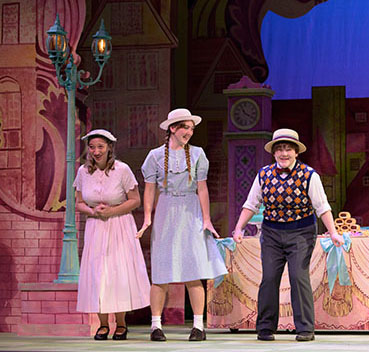by Daniel Hathaway
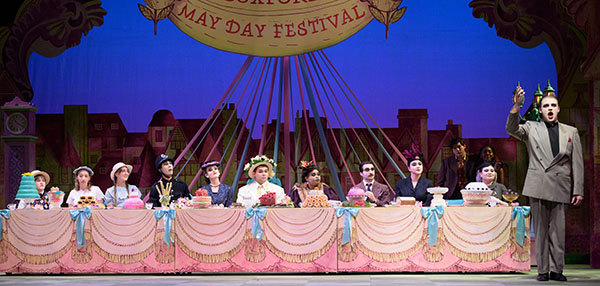
Never try to be funny. You have to be real. These people are saying these things because they mean it. It is quite easy to get carried away into something that is caricature and therefore shallow as opposed to real and profound.
Oberlin Opera Theater director Stephanie Havey and her excellent student ensemble obviously concurred on Thursday evening, November 2, staging a production in Hall Auditorium that was delightful and authentic in every respect. The denizens of the fictional village of Loxford all seemed to be playing themselves rather than just animating cardboard figures ordered up from central casting.

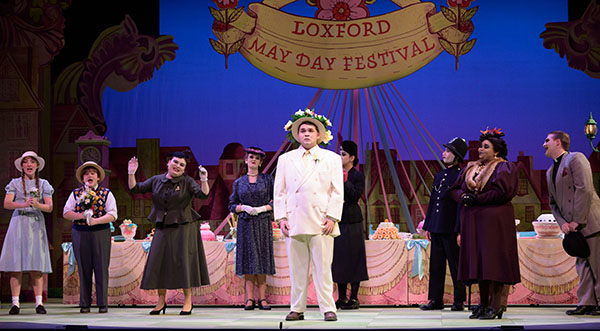
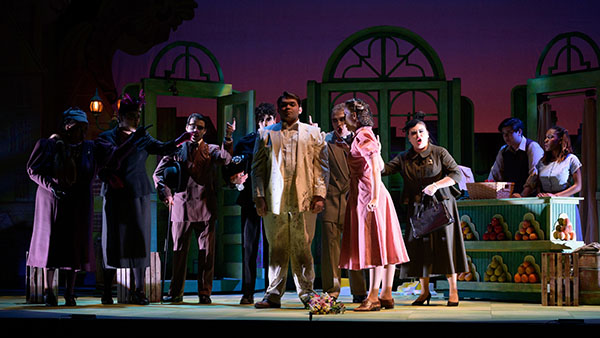
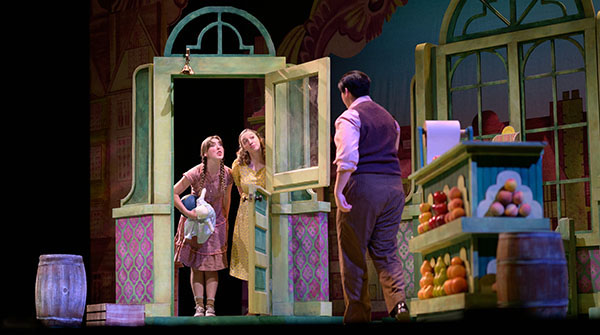
Acting and singing were uniformly splendid. Britten gives each character at least a brief solo aria, and their diction and projection carried clearly to the rear of the house. The wordy libretto begs for supertitles, and these flashed across the screen, perfectly timed to words in the score.
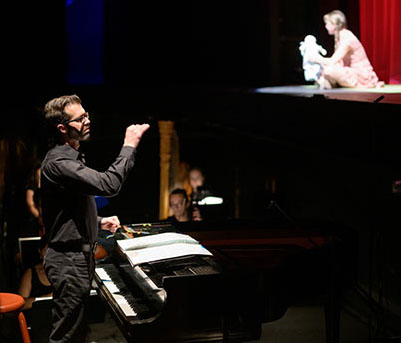
Laura Carlson-Tarantowski’s colorful scenic design drew applause when the curtain rose on the banqueting scene, and Chris Flaharty’s period costumes and Jeremy K. Benjamin’s lighting contributed to the several moods of the action. One curious aspect of the show — rather ghoulish makeup (whiteface and outlined eyes for the Vicar) — went unexplained.
The great thing about art and music is their ability to leave unresolved ambiguities hanging in the air. Is Albert Herring autobiographical for its composer as some believe, or is it simply an amusing representation of life in an English village around 1900? And, by the way, is this show truly a comedy?
There were only a few moments when the audience laughed out loud on opening night — sight gags like Albert’s rum-induced, whole-body hiccups and Harry’s unmistakable need to answer the call of nature among them. But a thunderous ovation during the curtain calls suggested that a good time was being had all evening on both sides of the footlights. Hopefully the Friday-Sunday cast enjoyed inhabiting their characters as much as this one did.
Photos: Yevhen Gulenko
Published on ClevelandClassical.com November 8, 2023
Click here for a printable copy of this article




